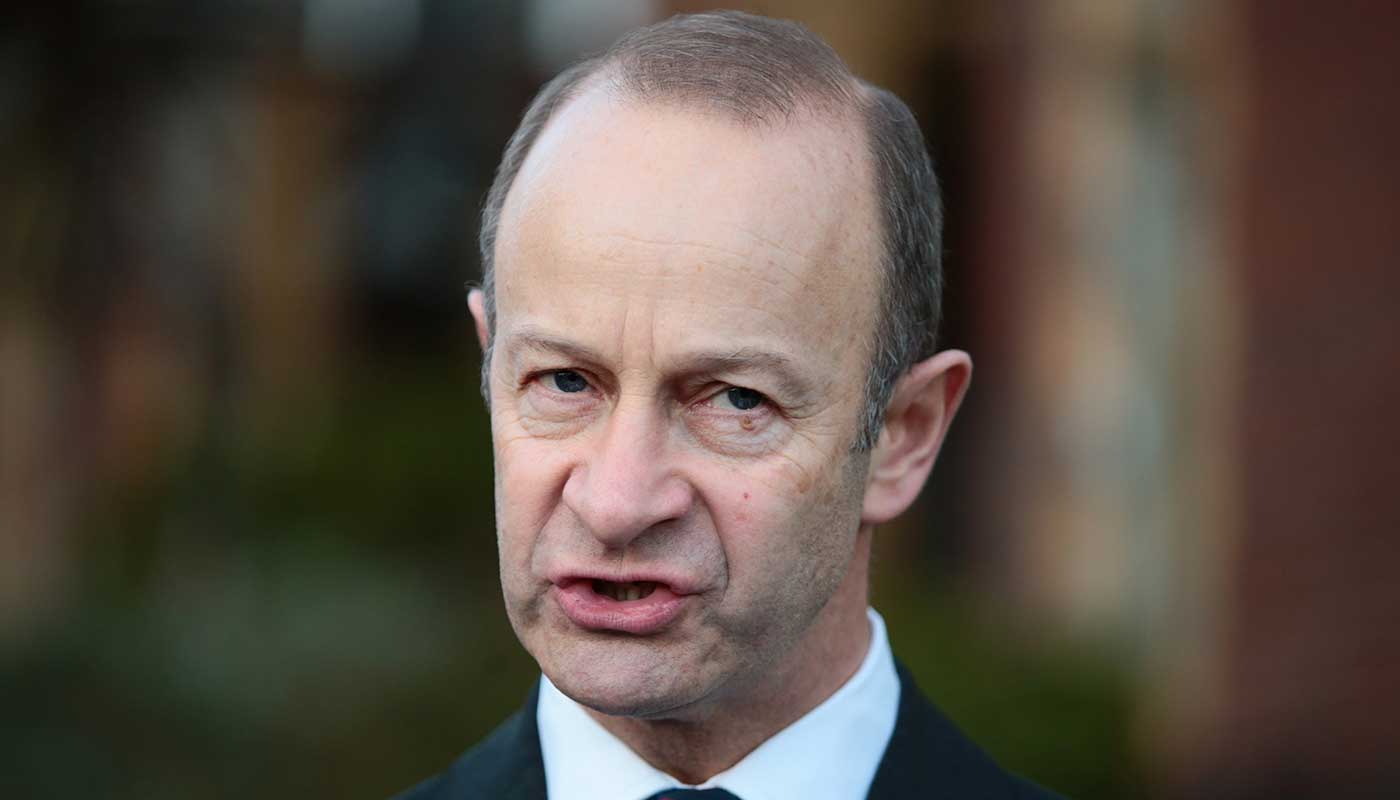Henry Bolton refuses to quit as UKIP leader
Bolton says he will ‘drain the swamp’ - and Nigel Farage offers his support

A free daily email with the biggest news stories of the day – and the best features from TheWeek.com
You are now subscribed
Your newsletter sign-up was successful
UKIP leader Henry Bolton has insisted that he will stay on in the role despite the mass resignation of senior party officials over his relationship with Jo Marney, who sent racist text messages about Meghan Markle.
Bolton’s future as leader of the party has been in doubt since a near-unanimous vote of no confidence by the UKIP National Executive Committee on Sunday. That triggered an extraordinary general meeting, at which rank-and-file members will decide whether toendorse or reject the vote.
It also led to a series of resignations among UKIP spokespeople. The party’s deputy leader and immigration spokesman were among those to quit.
The Week
Escape your echo chamber. Get the facts behind the news, plus analysis from multiple perspectives.

Sign up for The Week's Free Newsletters
From our morning news briefing to a weekly Good News Newsletter, get the best of The Week delivered directly to your inbox.
From our morning news briefing to a weekly Good News Newsletter, get the best of The Week delivered directly to your inbox.
But last night Bolton said it was the UKIP governing body that was “unfit for purpose” and vowed to “drain the swamp” within the party by introducing a new constitution at the extraordinary general meeting.
Former UKIP leader Nigel Farage has thrown his weight behind Bolton, saying his response to the crisis “could provide a lifeline” for the party, which must “reform or die”.
“As one party spokesman after another resigns, I am reminded of the nightmare Jeremy Corbyn faced in 2016 when 21 members of his shadow cabinet resigned,” Farage wrote in The Daily Telegraph. “Corbyn was written off by the press, but the rank and file membership saved him.”
UKIP has 28 days to convene the extraordinary general meeting to decide Bolton’s fate.
A free daily email with the biggest news stories of the day – and the best features from TheWeek.com
-
 Local elections 2026: where are they and who is expected to win?
Local elections 2026: where are they and who is expected to win?The Explainer Labour is braced for heavy losses and U-turn on postponing some council elections hasn’t helped the party’s prospects
-
 6 of the world’s most accessible destinations
6 of the world’s most accessible destinationsThe Week Recommends Experience all of Berlin, Singapore and Sydney
-
 How the FCC’s ‘equal time’ rule works
How the FCC’s ‘equal time’ rule worksIn the Spotlight The law is at the heart of the Colbert-CBS conflict
-
 Local elections 2026: where are they and who is expected to win?
Local elections 2026: where are they and who is expected to win?The Explainer Labour is braced for heavy losses and U-turn on postponing some council elections hasn’t helped the party’s prospects
-
 How corrupt is the UK?
How corrupt is the UK?The Explainer Decline in standards ‘risks becoming a defining feature of our political culture’ as Britain falls to lowest ever score on global index
-
 Three consequences from the Jenrick defection
Three consequences from the Jenrick defectionThe Explainer Both Kemi Badenoch and Nigel Farage may claim victory, but Jenrick’s move has ‘all-but ended the chances of any deal to unite the British right’
-
 The high street: Britain’s next political battleground?
The high street: Britain’s next political battleground?In the Spotlight Mass closure of shops and influx of organised crime are fuelling voter anger, and offer an opening for Reform UK
-
 Nigel Farage’s £9mn windfall: will it smooth his path to power?
Nigel Farage’s £9mn windfall: will it smooth his path to power?In Depth The record donation has come amidst rumours of collaboration with the Conservatives and allegations of racism in Farage's school days
-
 Is a Reform-Tory pact becoming more likely?
Is a Reform-Tory pact becoming more likely?Today’s Big Question Nigel Farage’s party is ahead in the polls but still falls well short of a Commons majority, while Conservatives are still losing MPs to Reform
-
 Nigel Farage: was he a teenage racist?
Nigel Farage: was he a teenage racist?Talking Point Farage’s denials have been ‘slippery’, but should claims from Reform leader’s schooldays be on the news agenda?
-
 Five takeaways from Plaid Cymru’s historic Caerphilly by-election win
Five takeaways from Plaid Cymru’s historic Caerphilly by-election winThe Explainer The ‘big beasts’ were ‘humbled’ but there was disappointment for second-placed Reform too